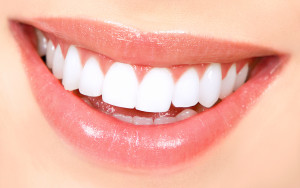
Poor oral health can negatively impact a person’s overall health. Luckily, simple appropriate oral hygiene tactics can protect a person’s health.
Common Oral Diseases
Common oral diseases and disorders include dental caries, gingivitis, and other periodontal diseases.
Dental caries is simply the condition of having damage to the teeth, frequently holes in the teeth – commonly known as cavities. Dental caries is caused by both genetic issues that result in insufficient enamel formation on the teeth and by excessive acidic bacteria on the teeth that essentially eat away at the teeth. Interestingly, due to increased sugar consumption, dental caries is one of the few diseases that is more prevalent among developed countries than underdeveloped countries.
Gingivitis is a mild gum disease that results in swollen or red gums. While gingivitis itself may not be serious, it often serves as a gateway to the development of more serious periodontal diseases.
Other more serious periodontal diseases include chronic periodontitis, which is a more advanced form of gingivitis and affects all tissue (including bone) that support and anchor the teeth in place, and also aggressive or necrotizing periodontal diseases, which can destroy gums, roots, mouth ligaments, and bones in the mouth – and which frequently require antibiotics or even surgery for treatment.
Common Causes of Oral Diseases:
There are a wide variety of causes of oral diseases. Many are preventable – although genetics is a factor that cannot be altered. Poor teeth or poor saliva production can certainly be inherited.
However, many common causes of oral diseases exist that can be prevented with a little care.
These causes include:
- Not brushing teeth
- Not flossing
- Not keeping properly hydrated
- Smoking
- Not eating fruits or vegetables that contribute to better oral hygiene
- Excessive alcohol consumption
- Excessive sugar intake
- Not wearing protective mouth gear in appropriate situations
- 92% of adults age 20-64 have had cavities filled
- 26% of adults age 20-64 have untreated tooth decay
- 8.5% of adults age 20-64 have periodontal disease, with higher incidence rate among smokers, and people with lower income
- The average number of teeth that adults age 20-64 have is 24.92 teeth remaining.
- 3.75% of adults age 20-64 have no teeth remaining.
- Brushing teeth at least twice daily
- Flossing daily
- Limiting intake of sugars and unhealthy snacks
- Regularly visiting your dentist
- Using an anti-microbial mouthwash
- Staying well hydrated
Effect of Poor Oral Health on Overall Health
Think of your mouth as a gateway to the rest of your body. Water, food, and bacteria can originate in your mouth and then travel to the rest of your body.
Thus, your oral health can have a profound impact on your overall health. Diseases of the mouth and gums can contribute to more serious diseases of the body.
For example, sufficient saliva is required to break down foods and neutralize the acids that are produced by mouth bacteria. If this saliva is not present, the bacteria overgrows in the mouth and can cause either gum diseases or periodontal disease.
From this, bacteria can enter the bloodstream and potential cause damage to major organs. Many scientists believe that this escaped bacteria can contribute to heart disease, diabetes, arthritis, and even dementia.
State of Oral Health in the US
For full statistics on the current status of oral health in the US visit here:
Statistics of most recent National Health & Nutrition Examination Survey show some striking statistics:
Suggested Oral Maintenance to Prevent Poor Oral Health
While it’s true that you can be genetically prone to poor teeth and oral diseases, in many cases proper oral hygiene can serve to eliminate oral health risks.
Fortunately, preventative maintenance of your teeth and gums is fairly straightforward.
Common tactics include:
Following these tips can put you on and keep you on the road to long-term good oral health. Keep up with Mobile Health’s blog for more health-related topics and discussion.
